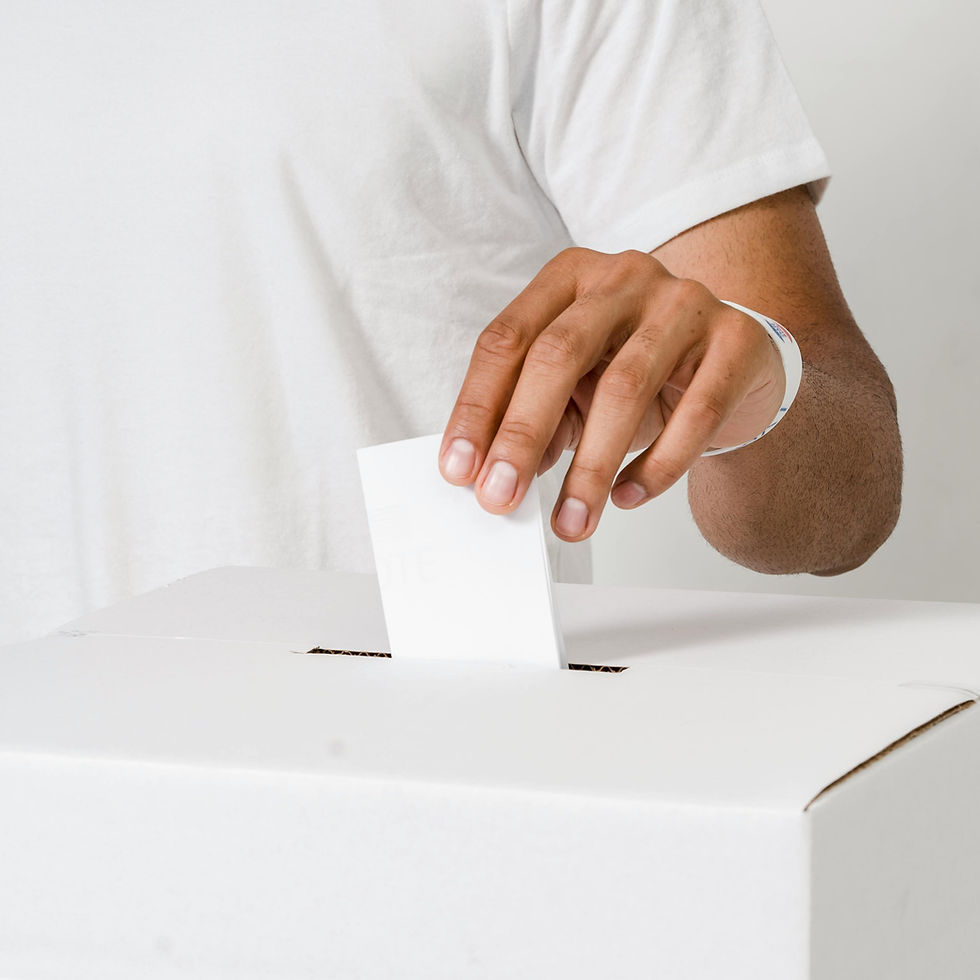The Many Forms of Disenfranchisement in Voting
- Zakiya Summers
- Feb 9, 2025
- 4 min read
Updated: Feb 24, 2025

When most people think of voter disenfranchisement, their minds often jump straight to felony convictions as the primary barrier preventing individuals from casting their ballots. There are 23 felonies in Mississippi that disenfranchise voters. Drug crimes are not included. Out of state convictions have no bearing and if disenfranchised in Mississippi, one can vote on presidential ballots despite the crime. While it is true that felony disenfranchisement is a significant issue in Mississippi and across the U.S., it's far from the only form of voter suppression. There are more subtle, often overlooked tactics that can quietly strip away citizens' voting power, and precinct changes, voter identification requirements, and failed voter roll maintenance activities are a few such methods.
Precinct changes might seem like an administrative adjustment, but they can have profound effects on voter turnout, particularly in communities of color, low-income neighborhoods, and areas where access to reliable transportation is limited. Imagine waking up on Election Day, excited to make your voice heard, only to discover your voting location has moved miles away from where it used to be. For many, this is not just an inconvenience; it can be an insurmountable barrier.
When precincts are moved or consolidated without sufficient notice, or when they are placed in locations that are difficult to access, this can lead to long lines, confusion, and frustration. Some voters may be forced to take time off work, find childcare, or even pay for transportation they didn't need before. For those on a tight schedule or limited resources, the result is clear: they may not vote at all.
Precinct changes are often justified as efficiency measures or responses to population shifts, but these decisions are too often made without timely informing or considering the real impact on the voters who are most affected. When such changes disproportionately affect specific groups of people, whether intentionally or not, they represent a modern form of voter disenfranchisement.
I introduced legislation during the 2024 Session to prevent counties from making precinct changes less than 60 days from any election. My bill also included notification provisions to ensure that voters are informed well in advance. While the bill did not pass in the Senate, it was effective action in putting local elected officials and voters alike on notice about what was happening in Hinds County. Fortunately, we were able to work with the Board of Supervisors to reverse an effort that would have consolidated a number of precincts in West Jackson. Still, it is critically important that voters check their voter status and precinct location with their county circuit clerk or election commissioner because there could be changes.
In theory, voter ID is a simple verification mechanism because one would assume that everyone has some form of identification. We must recognize that some members of our community do not have an ID, do not possess the documents nor funds needed to attain one, or are confused on the parameters of using one. To be clear, a voter ID is for photo purposes only. It is not meant to check your address, weight, eye color, etc. We passed a law during the 2024 session to clarify that expired IDs are valid if issued within 10 years.
Voter roll maintenance is a routine activity for county election commissioners. It is purposed to clean rolls of voters who are ineligible, deceased, or no longer live in the county where they are registered. The Mississippi Legislature, under Republican control, have tinkered with this process over the years. The latest iteration provides that election commissioners can mail notification cards to voters who have missed any election to verify their status. If the voter does not respond to the card, he or she is placed on inactive status. Then if the voter fails to vote in two consecutive federal elections, or in four years, they can be purged. This is voter suppression at its finest. Just because you don’t shoot your weapon, doesn’t mean you lose access to a gun. But, if you don’t vote, you could lose your access to the ballot box.
The Hinds County Election Commission purged 18,000 voters in 2023 and thousands more this year.
This piece discusses several forms of disenfranchisement, but there are many other ways of suppressing the vote, such as not having enough ballots, poll workers turning away voters at the precinct for illegal reasons, and racially gerrymandering districts - all issues that must be addressed through equitable policy making in the absence of Section 5 of the Voting Rights Act.
We need to broaden our understanding of disenfranchisement. It’s not just about who is legally allowed to vote. It’s about ensuring that every eligible voter has a fair, reasonable opportunity to participate in the democratic process. Changing precincts without proper planning and communication, using voter ID as a punitive mechanism, and deliberate purging processes, undermines this. We must hold elected officials accountable for making sure that voting is accessible for everyone. We must also continue to advocate for common sense reforms like online voter registration, same day registration, early voting, and voter restoration.
In a democracy, every voice matters, and every vote should count. But if we don’t address the quiet forms of disenfranchisement, we risk silencing the very voices that need to be heard the most. The most important way to beat back voter suppression is to vote.

